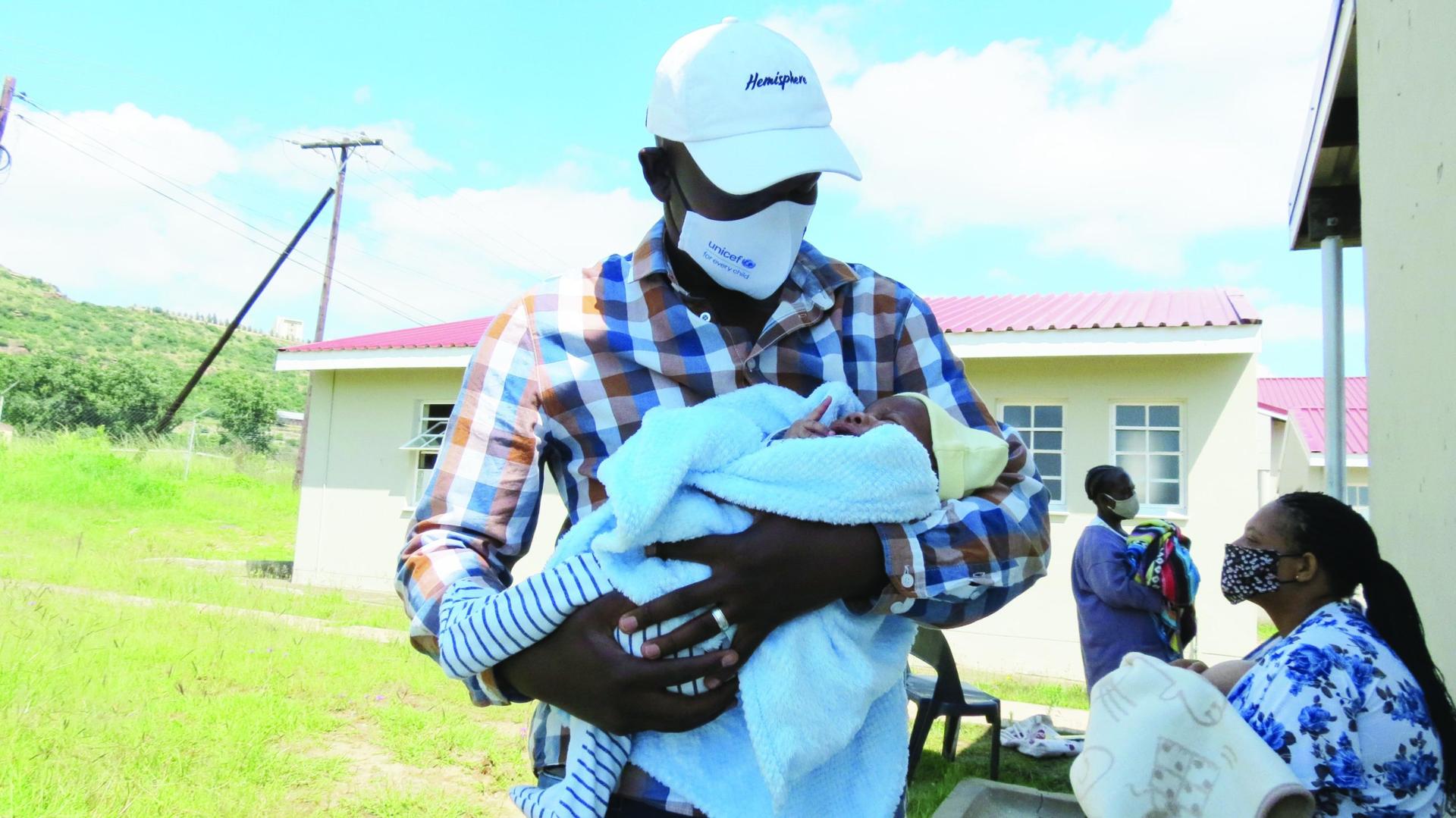Africa-Press – Lesotho. In a joint initiative Lesotho Red Cross Society (LRCS) and the United Nations Children’s Fund (UNICEF) have established the Risk Communication and Community Engagement (RCCE) on COVID-19 project to ensure health emergency preparedness. RCCE is a component of health emergency preparedness and response action plan.
This tool is designed to support risk communication, community engagement staff and responders working with national health authorities, and other partners to develop, implement and monitor an effective action plan for communicating effectively with the public, engaging with communities, local partners and other stakeholders to help prepare and protect individuals, families and the public’s health during early response to COVID-19.
“People who were victims say they now feel positive about life, for instance people who had anger and depression had their minds cleared from all that,” said Lithapelo Kutlenyane Disaster Management, Social Service, Mental Health and Psychological Support Officer.
According to Kutlenyane victims are offered Mental Health Psychological Support (MPHSS), which is long term for victims with fear, anxiety, stress, withdrawal, depower and anger for instance losing a job or watching a loved one being killed in front you, child molested, while psychological first aid is short term.
The project was kick-started in six of the country’s COVID-19 most affected districts of Maseru, Mafeteng, Leribe, Mokhotlong, Quthing and Qacha’s Nek for duration of six months. Firstly, workshops were held to train 10 volunteers and staff from all the 10 districts.
Incorporated is also a Water And Sanitation Hygiene (WASH) project that has worked with the RCCE project to assist communities with clean water, latrines for children and hygiene education.
The target populations are children from 0 to 18 years; apart from that there are specific targeted sectors, being breast feeding women, care givers, village health workers and men that take care of their newly born children.
Information on matters related to the project is gathered through the use of suggestion boxes at clinics, hospitals, shops, bars and health centres, toll free phone calls and conducting house to house surveys. The target is on the incidents of sexual violence, gender based violence, poverty as well as nutrition and security.
After finding similar cases group sessions are done at health centres, clinics and hospitals, family visits and through chiefs and councillors, where victims are counselled and assisted to find help from the police or through courts of law.
Some cases are referred to the Ministry of Social Development and the Ministry of Health in cases of need of shelter or clothes and food and medical attention; they are also taught about their rights. UNICEF funded the project with M2.5 million and technical support. Offered sessions are made for groups of people, families or individuals.
Some of the cases they came across were about child marriage where girls between the ages of 15 and 14 years were married to older men, the matter was reported to the police and those children were returned to their homes.
The LRCS division office distributed dignity kits to those girls and offered them psychosocial support. The total target population on access to critical health and critical areas of MPHSS, education and nutrition services ensured in those six high risk districts 22 546.
It is crucial for the response to understand the local factors that may act as barriers for the uptake of public health services. Often, responses look only at the negative aspects, failing to identify, learn, consider and map local capacities to work together to reduce barriers to the uptake of public health measures.
And as such certain behaviour and practices changes might require logistic and material support; for instance, for people to adopt proper hand washing demands the availability of water and soap are key for it realization.
The COVID-19 outbreak and response has been accompanied by an overabundance of information from various sources – some accurate and some not that makes it hard for people to decide which is a trustworthy source of information.
The RCCE pillar of the response for COVID-19 lies with each country facing the threat of the disease. All countries are at risk and need to prepare for and respond to COVID-19.
This strategy follows the categorization of countries described by WHO for COVID-19, and has cemented the notion that controlling this outbreak will require a multispectral response with RCCE central to localizing and connecting the response actions at the regional and global levels with the realities of communities.
For More News And Analysis About Lesotho Follow Africa-Press






